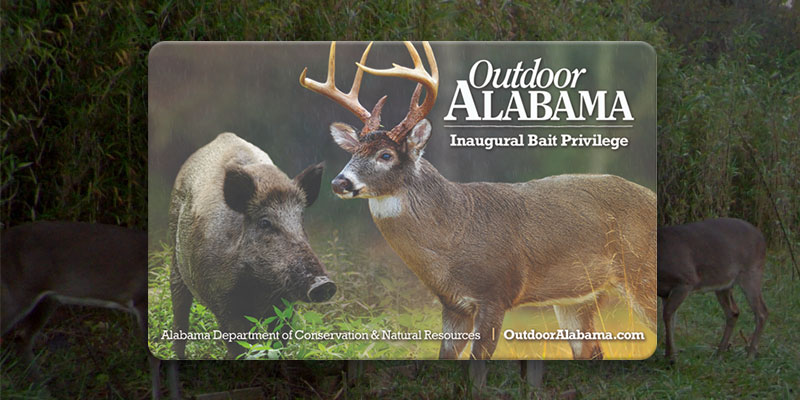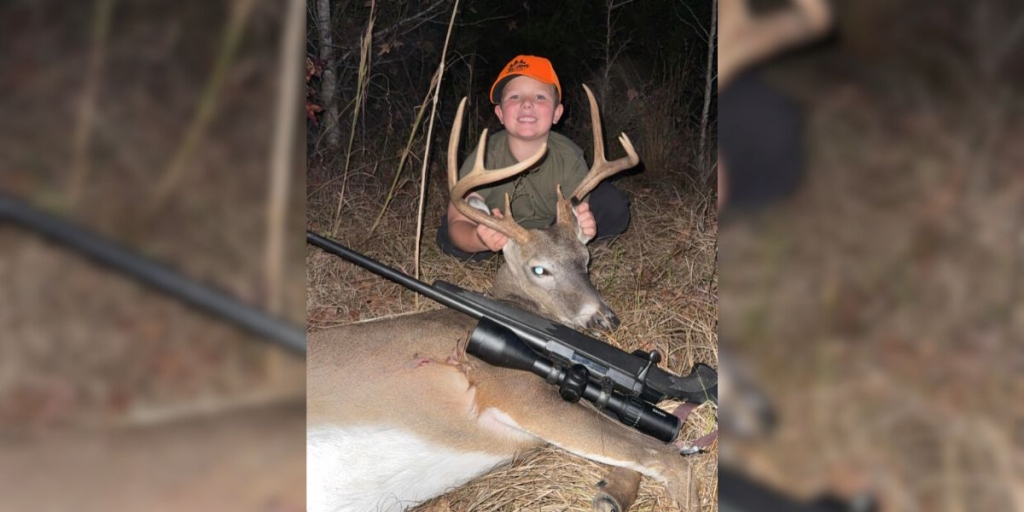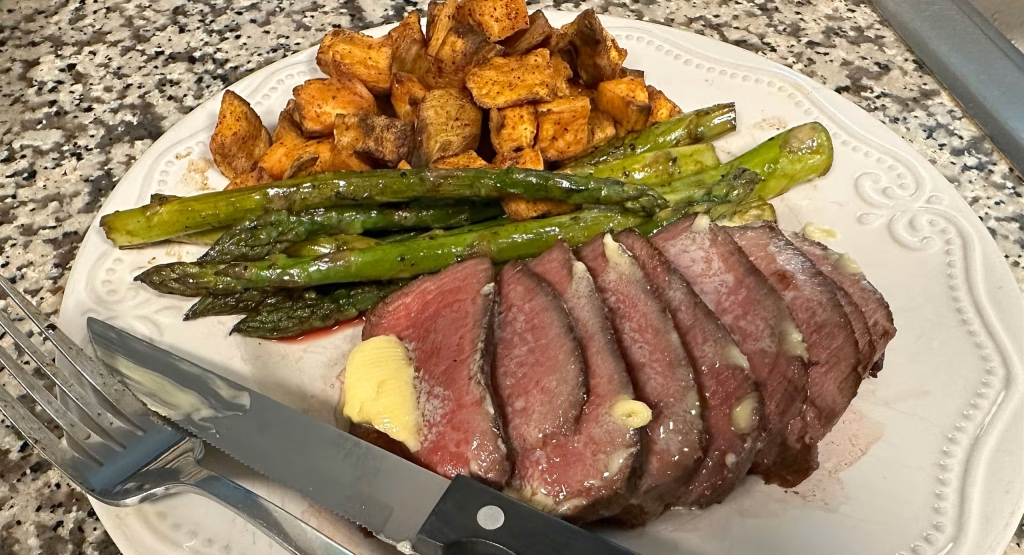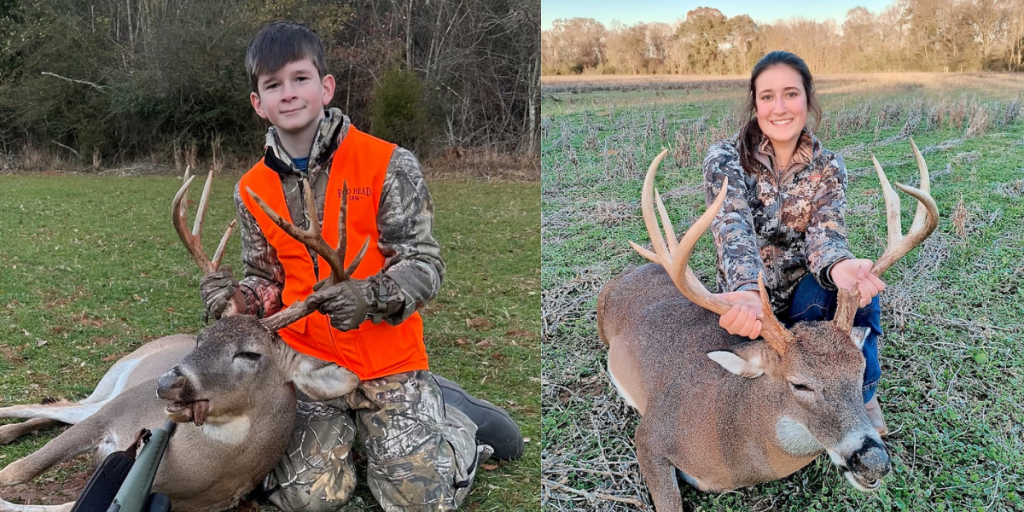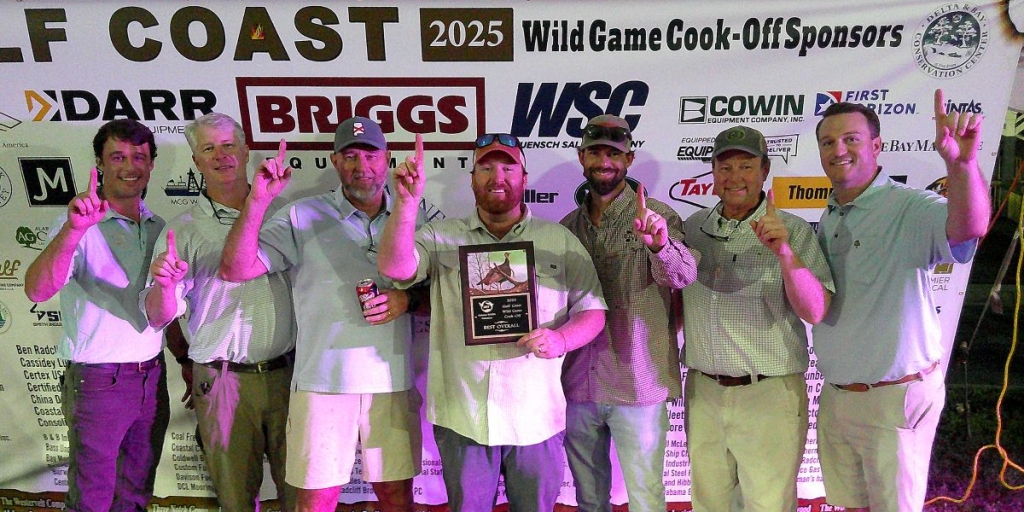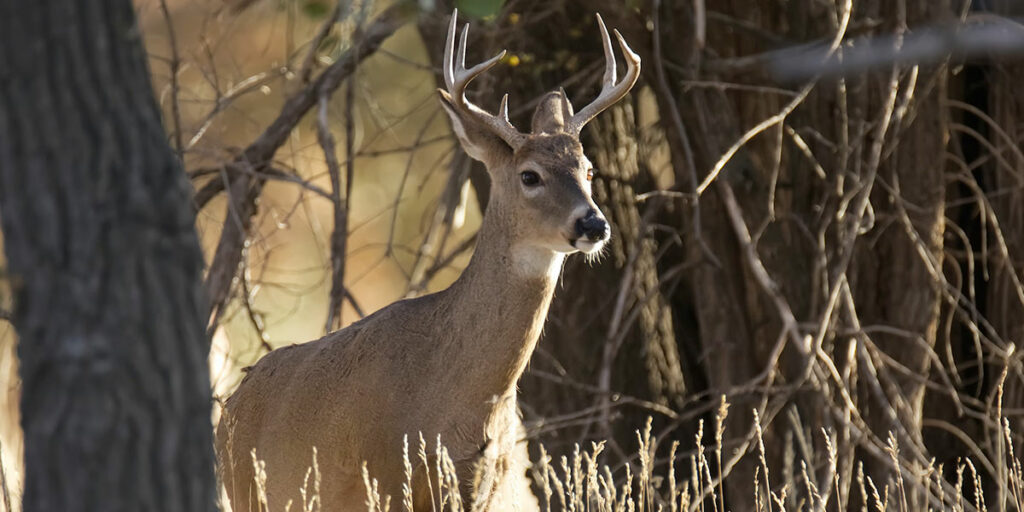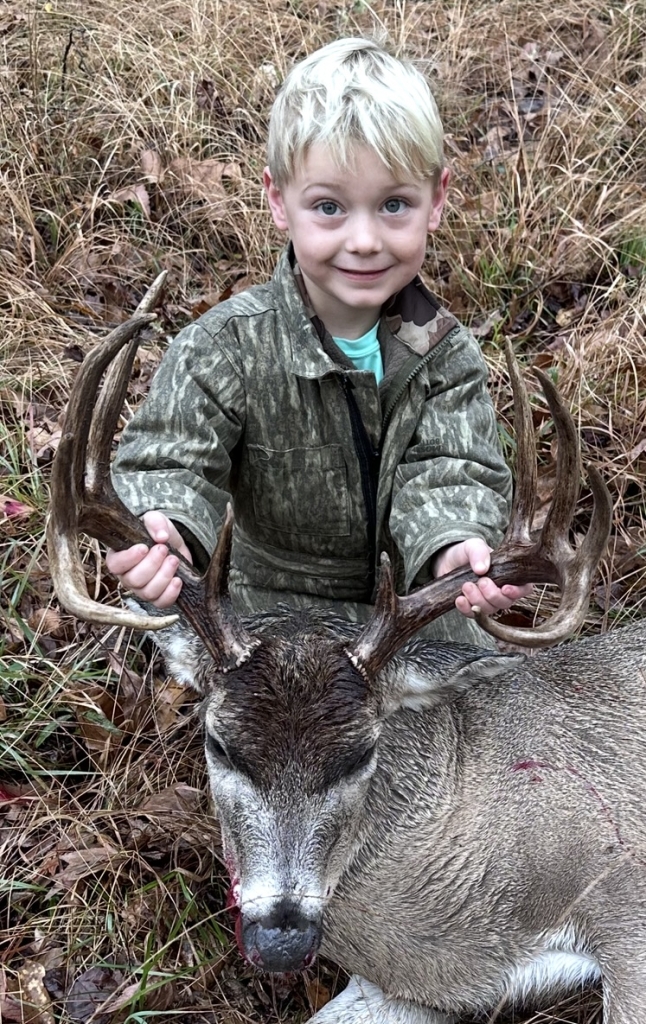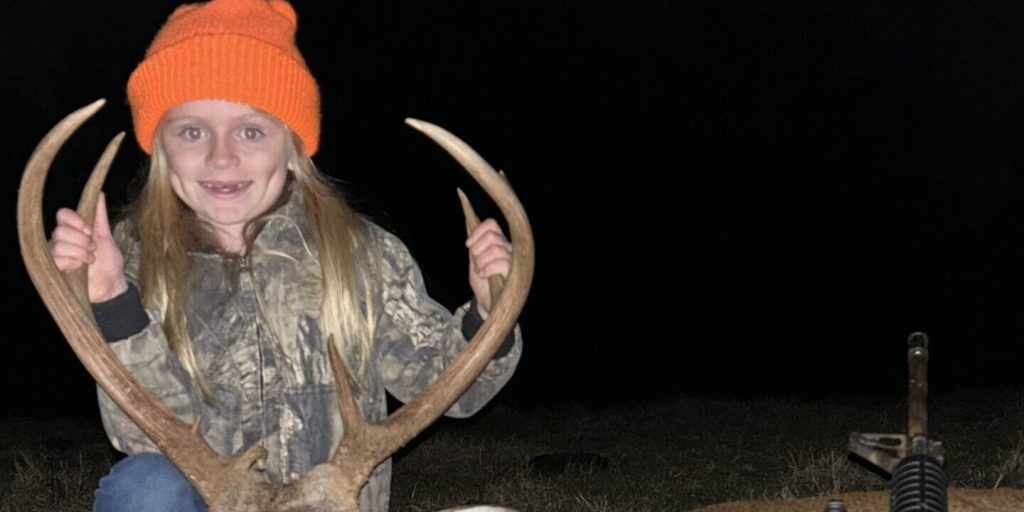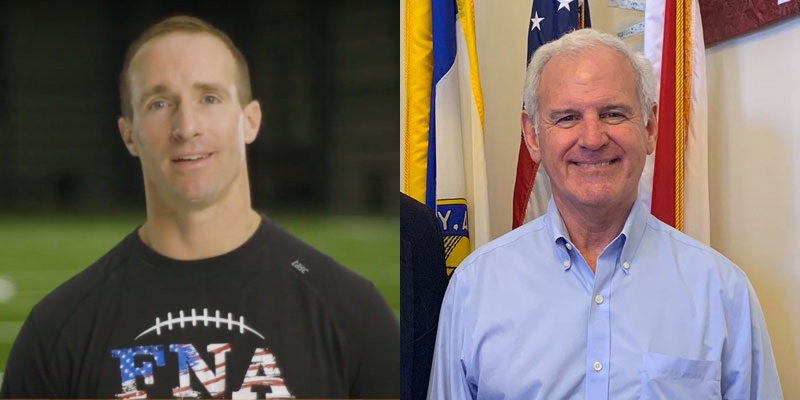Now that the 2019-2020 hunting licenses are on sale, many hunters are pondering whether to take advantage of a new opportunity or maintain the status quo. That opportunity is the inaugural bait privilege license that allows hunting for white-tailed deer and feral pigs with the aid of bait.
Chuck Sykes, Director of the Alabama Wildlife and Freshwater Fisheries (WFF) Division, said hunters need to remember that the bait privilege license was an act of the Alabama Legislature and not a regulation set by the Alabama Department of Conservation and Natural Resources.
“The baiting privilege, first and foremost, was something that was legislated,” Sykes said. “It was not something the Department pushed or something that we crafted. This came from the Legislature. Their constituents wanted to hunt over bait. So, good, bad or indifferent, we’ve got it.”
Sykes explained what the Alabama legislators included in the bait privilege legislation.
“Anybody who wishes to hunt over bait must have a bait privilege license,” Sykes said. “A lot of people think that’s just corn. Some people are calling it the corn stamp. That’s not true. It includes a protein feeder, mineral blocks, juices and sprays. All of that is considered bait if you’re going to hunt over it. If you are going to do that, you have to buy a bait privilege license.”
While Alabama requirements for hunting and fishing licenses have age exemptions and landowner exemptions, the bait privilege license does not have exemptions.
“It doesn’t matter if you’re 7 or 107 or a private landowner hunting on your own property,” he said. “There are no exemptions provided in the legislation. So, everyone who hunts over bait will have to have that license.”
A conversation that occurred at the Wildlife and Freshwater Fisheries Division booth at the Buckmasters Expo in August explained why most deer hunters should consider purchasing a bait privilege license as a form of insurance.
The hunter said one member of his hunting club was adamant that he was not going to hunt with the aid of bait, and he wasn’t going to buy a bait privilege license. However, the other members of the club are going to purchase bait privilege licenses and hunt with the aid of bait.
“Guess what? That one guy who doesn’t have a bait privilege license and is a member of a club that chooses to bait is putting himself at risk to get a ticket,” Sykes said. “Here’s the way I’m looking at it. Whether I like it or not, whether I, Chuck Sykes, personally agree with it, I bought one the first day. Now anybody I choose to go hunting with, I don’t have to worry whether they put feed out and it’s been gone for 10 days. I don’t have to worry if their feeder is 90 or 100 yards away and out of the line of sight according to the ‘area definition’ regulation. Whether I hunt over feed or not is irrelevant. It is a $15 insurance policy, so I don’t have to worry about it. People who are in these big clubs, there’s always one in every crowd. Even if the club decides they’re not going to feed, there’s going to be one guy who does it. Fifteen dollars is a lot cheaper than a $250 ticket.”
For those who insist they are not going to hunt with the aid of bait and are not buying the bait privilege license, Sykes said that’s perfectly fine.
“It’s not mandated that you have to hunt over feed,” he said. “You can hunt oak trees or food plots. Or, if you want to feed, make sure you’re more than 100 yards away and out of line of sight because of natural vegetation or natural terrain. The area definition is still in effect.”
Sykes offered an example of his father, Willie, who lives and farms cattle in Choctaw County.
“This is Chuck talking. My daddy has not killed a deer in over 40 years,” he said. “But he loves to feed them. I only get to hunt two or three days a year on my family farm. There have been more times than not that I have been denied that opportunity because when I get home on a Friday afternoon, I’ll ask Daddy, ‘When was the last time you put feed out?’ He’ll say, ‘Oh, I just put a 5-gallon bucket out the other day. I’m sure it’s already gone.’ Now that I have a bait privilege license, I don’t have to worry about it. Does that mean I’m going to have a feeder stuck out in the middle of the food plot? No. But, if I have the opportunity to come home and see Daddy, I don’t have to worry about it. I know a bunch of people who are looking at it that way. I bought Daddy a bait privilege license the other day on one of the inaugural hard cards for the first year of the license. He turned 77 on August 3.”
Sykes said one of the most common questions that comes up about the bait privilege license is, “What do you mean my grandson has to have a bait privilege license?”
“If the 7-year-old grandson is sitting in a shooting house with Granddaddy, and there’s a 30-06 and a .223 in that box, and there’s a feeder in the middle of the field, Granddaddy and his grandson both need to have a bait privilege license,” he said.
When the Alabama legislators asked for Sykes’ input on the proposed legislation, he said a provision that allows the Commissioner of the Alabama Department of Conservation and Natural Resources (ADCNR) to manage the feeding of wildlife in the event of a disease outbreak made the bill much more palatable.
“That the Commissioner can manage the feeding, to me, that makes us a stronger agency now that we have the statutory authority to manage not only baiting but also feeding of wildlife in the event of a disease,” Sykes said. “I think, as an agency, we are better off now than before it passed. And that has nothing to do with hunting over bait. When I explain that to the naysayers, they still don’t like hunting over bait, but they understand that, as an agency, we were not going to oppose that bill because it gave us the statutory authority to manage feeding.”
Sykes said quite a few bait privilege licenses have been sold, and he expects a rush right before deer season opens.
“We’re doing everything we can to get the word out about the bait privilege license,” he said. “We’ve had it on radio, newspapers and magazines, and it’s in the Alabama Hunting & Fishing Digest. One of the problems with this is the resident landowners have done the same thing for so long that many of them don’t pay attention to any changes. Their deer season has been basically the same for 40 or more years. I’m sure it’s going to take a little while to the get the word out to everybody.”
David Rainer is an award-winning writer who has covered Alabama’s great outdoors for 25 years. The former outdoors editor at the Mobile Press-Register, he writes for Outdoor Alabama, the website of the Alabama Department of Conservation and Natural Resources.




